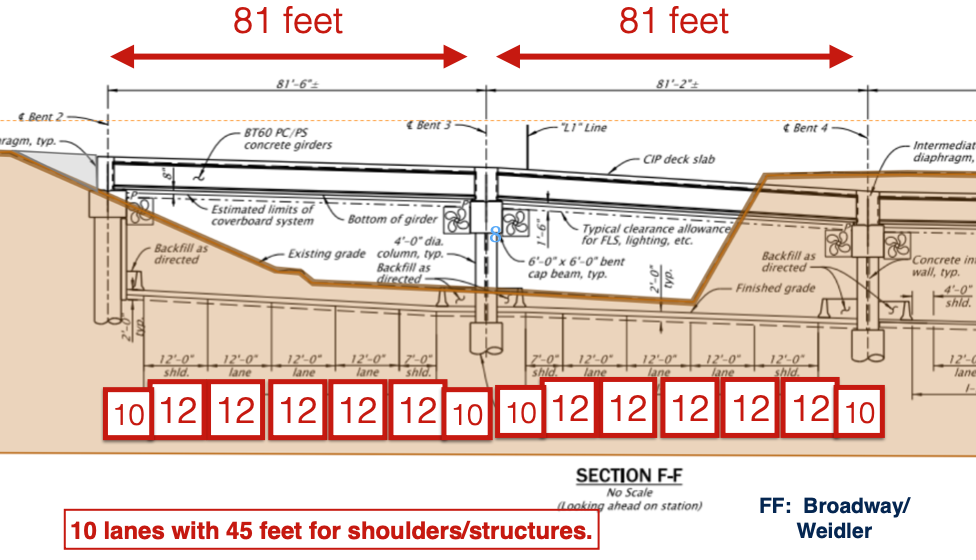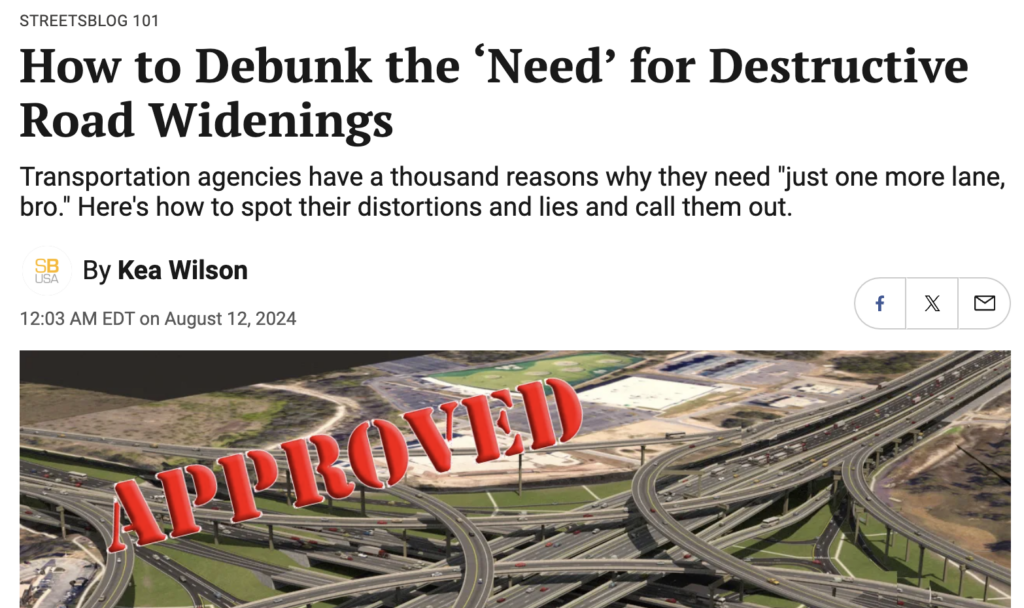Must Read
Portland advocates sue to block Rose Quarter Freeway widening. There’s a new chapter in the long-running battle to block the Oregon Department of Transportation’s I-5 Rose Quarter Freeway widening project, a 10-lane mile and a half expansion that has quadrupled in cost to $1.9 billion. Local advocates, led by No More Freeways, have filed a federal lawsuit challenging that the project’s Environmental Assessment violates the National Environmental Policy Act.
Specifically, the project has failed to accurately disclose its true size and environmental impacts, and also failed to look at reasonable alternatives, including congestion pricing. The suit is the latest in a series of legal challenges to this problematic project. The lawsuit has received media coverage from Oregon Public Broadcasting, the Oregon Capital Chronicle, Willamette Week, and the Portland Mercury, and national coverage from Streetsblog.
Self Driving Cars would be a climate disaster. David Zipper challenges the notion that self-driving cars are a transportation panacea. In fact, the advent of self-driving cars is likely to trigger an entirely new and overwhelming wave of induced travel, further overburdening city streets, worsening pollution and congestion.
By freeing drivers from the tedium of watching the road, autonomous vehicles will make car travel easier—not unlike the experience of whizzing along a recently expanded roadway. People will respond by traveling farther and taking more trips than they would have otherwise. Emissions from transportation, already the largest source of greenhouse gases in the U.S., will inevitably rise.
Already researchers have shown that advanced driver-assistance systems, which handle aspects of driving but still require a person to be engaged behind the wheel, are leading people to drive more. (ADAS is often seen as a stepping stone toward fully autonomous vehicles.) One study found that Tesla owners with Autopilot, the company’s ADAS product, drove around 5,000 more miles per year than those without it.
Debunking the lies our DOTs tell to sell wider highways. Kea Wilson, writing at Streetsblog has a revealing commentary cataloging all the different rhetorical gimmicks and outright lies that highway departments use to sell more and bigger roads. They’ll always label a highway project an “improvement”–regardless of its social or environmental effects. Slap a bike path or a sidewalk on a freeway, no matter how useless or unpleasant, and suddenly your multi-lane freeway is a “multimodal” project. Justify building an extra wide project for some unspecified future transit service–then convert that space into added highway lanes.
Helpfully, Wilson both documents these DOT falsehoods and shows how to counteract these misleading messages:
Inspired by the incredible advocates at the Freeway Fighters Network, here’s a cheatsheet of eight common arguments, distortions, and outright lies that transportation officials use to sell the public on widening streets and roads — and how to debunk them.
In the News
City Observatory’s Joe Cortright is quoted in Bloomberg‘s article, “When Climate Funds Pay for Highway Expansion”
Other transportation experts, like the urban economist Joe Cortright of the City Observatory think tank, have critiqued the notion that adding lanes to reduce stop-and-go driving can end up trimming pollution.


